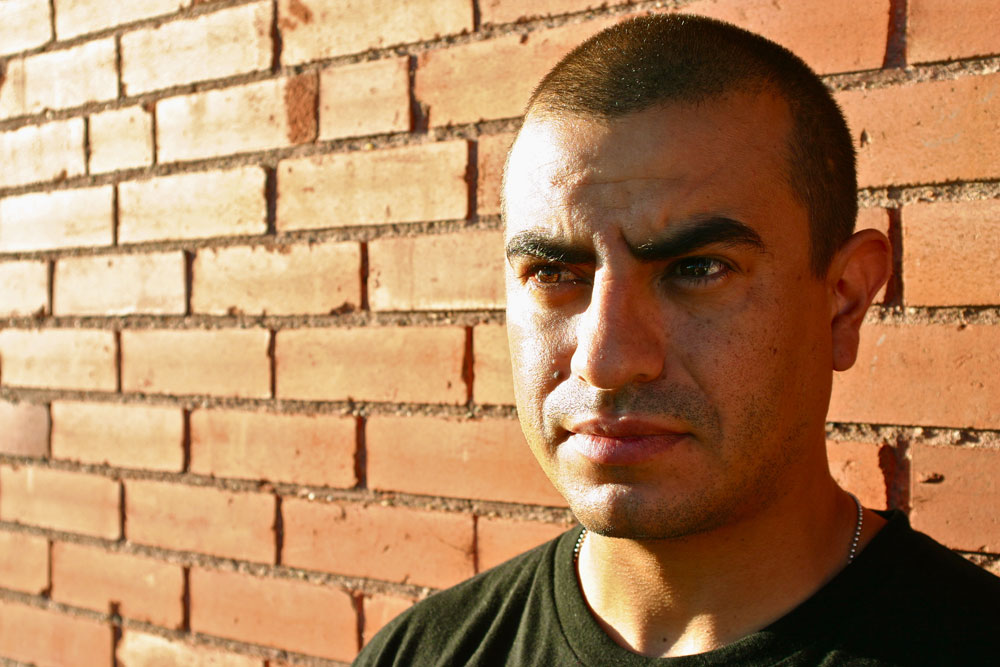LOS ANGELES, Calif. — “The workingman gives up his dreams and slaves for all his life,” the impassioned marcher shouted, her voice blaring Chicanoism out of a bullhorn that echoed down the streets of East Los Angeles.
Hundreds of sign-wielding activists marched in the streets to mark the 40th anniversary of the National Chicano Moratorium of the Vietnam War August 27. The Moratorium, which was implemented by the Chicano movement back in 1970, protested the exploitation of minorities, especially Latinos in the Vietnam War.
The march followed the original 1970 route, in East L.A., down Whittier Boulevard, passing the Silver Dollar, the bar where Ruben Salazar, a Juarez-El Paso native and acclaimed war and human rights journalist was killed 40 years ago during the first moratorium march. Salazar was covering the moratorium when he was struck in the head with a 10-inch wall-piercing tear gas projectile while sitting inside the Silver Dollar.
Old and new school Chicano activists, Latino organizations and other collectives rallied at Salazar Park for the 40th anniversary of the march commemorating both the moratorium against the Vietnam War and Salazar’s death to raise awareness of problems Latinos face today. Cited were two wars and the growing immigration debate with laws considered discriminatory against Latinos such as bill SB1070 passed recently in Arizona.
Eric Murillo, one of several activists from El Paso in the sea of brown berets and red Chicano flags, said he went to the event to express his opposition to war. “I went to L.A. because I really wanted to take a stand against the wars that we’re in now and to think about what happened 40 years ago… and I think a lot of things that a lot of people were fighting for in 1970, people are looking for differences and changes in our society today,” said Murillo.

“I went to L.A. because I really wanted to take a stand against the wars that we’re in now..." Eric Murillo said. (John De Frank/Borderzine.com)
Murillo said that a play entitled The Silver Dollar that was part of the Anniversary had a strong impact on the participants. “The Silver Dollar play really touched me because for one, it was written by an El Pasoan… and of course Ruben Salazar, an El Pasoan and who did a lot for his community in terms of raising awareness and standing up for human rights.”
The Los Angeles County Sheriff’s Department broke up the 1970 moratorium march using tear gas and one of those canisters hit Salazar who was inside the Silver Dollar. A storm of controversy followed the investigation of Salazar’s death. Reports said that the tear gas used by the Sheriff’s Department was designed for barricade removal rather than crowd dispersal.
As part of the anniversary people held photos of Salazar as a memorial to a Latino devoted to minority rights and their stories of struggle.
Murillo, a military vet and activist for both immigration and veteran’s rights, parallels the struggles that surrounded Chicanos in 1970 with that of the Latinos today in regards to immigration rights and military service.
“There’s a lot of money being spent on militarizing the border instead of helping the communities and I think that one of the things that I really took from the event is the need for our communities to look at where we are the same verses different so that we can pull together to create enough of an impact to make a change,” said Murillo.
Murillo turned to activism and attended the anniversary of the moratorium because of his experiences in both the service and being Mexican-American.
“I’m opposed to these wars because I feel we are being used as cannon fodder for people that are benefiting greatly from the war while our communities are suffering. Money that could be spent in our communities is being spent on war,” said Murillo.
As Murillo immersed himself into the river of demonstrators and explained the plot of The Silver Dollar’s generational gap and the rebirth of the Chicano identity, he reiterated the importance of the moratorium and Chicano movement.
“I think a lot of us are left wondering what our role is in this movement and not as a question that we ask someone else but rather internally. I think we’re all trying to ask ourselves how we can take the lessons learned from this movement … and how we can look with in and see how we can pull our community together,” said Murillo.
Murillo, who is also a father and often times takes his child with him to rallies and protests, explained that he wants his child to learn from these experiences. “I think it’s important that all generations get exposed to it because they are the future and if we want to make a better future, I think we really have to start with educating our children about the conditions that exist and also the solutions for these conditions that exist.”

Chicano activists and Latino organizations from El Paso where present at the 40th Anniversary of the National Chicano Moratorium of the Vietnam War August 27, 2010. (John De Frank/Borderzine.com)

Let’s(the people) keep fighting prejudice. Anyone who believes racism does not exist, really are blinded by their misunderstanding, news reports that fail to honorably tell the real story, parent’s beliefs or ignorance…